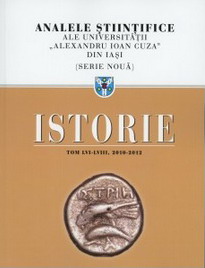Partidul Naţional Liberal în perioada post restauraţie (iunie 1930). Rezistenţă şi adaptare politică
Liberal National Party in post Restoration period (June 1930). Resistance and adaptation policy
Author(s): Ovidiu BuruianăSubject(s): History
Published by: Editura Universităţii »Alexandru Ioan Cuza« din Iaşi
Keywords: Carlist Restauration; Romanian Liberalism; political parties system; adaptation policy
Summary/Abstract: The Carlist Restoration is a political turning point of the interwar period. In June 1930, the Romanian political system and adjacent practices that tended to settle into a pattern of relative democracy were radically changed by imposing new actor. All political competitors were aware that the King was to become major power factor and the majority of politicians concern was related to adaptation to the new reality of public architecture. First, it is a time of reorganization of the political scene, with repercussions on how public actors perceive the visible manifestation. Also Restoration act transformed the debate within the parties themselves. Historiography, political evolution of these institutions in relation Restoration and especially postrestauration is less professionally aproached. Act of June 1930 is built to strict evolving monarchy and has no place in the history of parties, although these mutations were important and that marked the decade that followed the Carlist Restoration. I approach at narrowing the National Liberal Party propose in this paper an analysis of the political attitude of "survival" that liberals have articulated it in the second half of 1930 in response to a major existential challenge, perhaps the most important in their history until the imposition of communism. Restoration called into question their existence as a political party. Is a dynamic of exclusion, which highlights the political culture of Romanian liberals, and the other competitors, how each policy thinking, civic action and the role of ethical values in society. It is also a moment of truth for liberal organization itself, the loyalty of members was hardly tested by removing the possibility of returning to power and its advantages, but also seductive imposition of the party led by George Bratianu in the Romanian liberalism space.
Journal: Analele Ştiinţifice ale Universităţii »Alexandru Ioan Cuza« din Iaşi. Istorie
- Issue Year: 2012
- Issue No: 56+58
- Page Range: 371-408
- Page Count: 38
- Language: Romanian
- Content File-PDF

